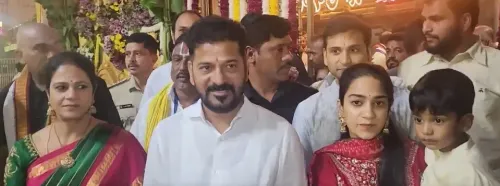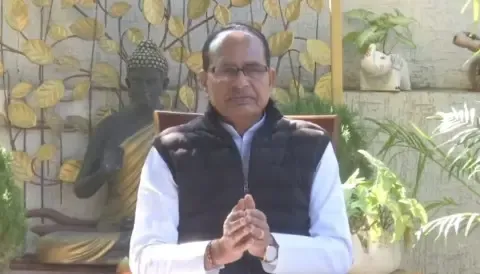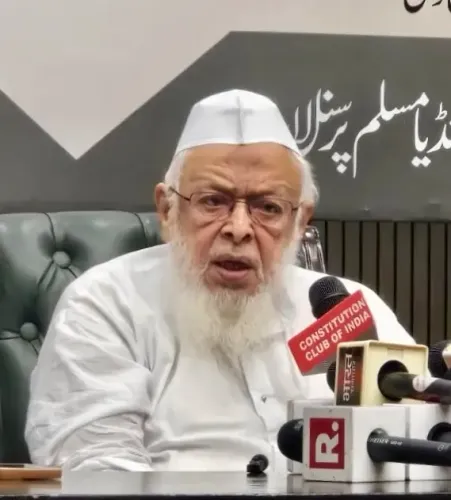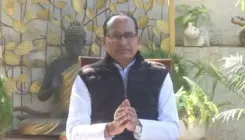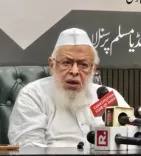Is Anyone Above the Law? Rajasthan CM Affirms Zero Tolerance for Corruption
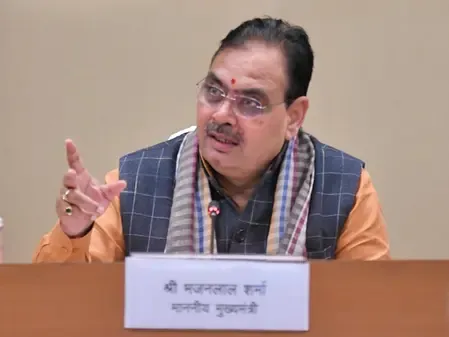
Synopsis
Key Takeaways
- Commitment to Zero Tolerance: Rajasthan's government is dedicated to eradicating corruption.
- Public Participation: Citizens are encouraged to actively report corruption.
- Significant ACB Achievements: The ACB has made notable strides in combating corruption.
- Strengthening Law Enforcement: New initiatives aim to enhance police capabilities.
- Transparency in Governance: The government is implementing measures for greater accountability.
Jaipur, July 15 (NationPress) Rajasthan Chief Minister Bhajan Lal Sharma delivered a powerful address during the 68th foundation day of the Anti-Corruption Bureau (ACB) at the Rajasthan International Centre on Tuesday, reinforcing the state government's steadfast dedication to establishing a corruption-free environment.
The Chief Minister stated, "Corruption is a pervasive menace that hinders welfare initiatives from reaching those in need and exacerbates social inequality."
Emphasizing the state government's strict policy against corruption, CM Sharma asserted, "Regardless of an individual's power, no one is above the law. Law enforcement must fulfill their responsibilities with integrity, free from any external influence."
He assured that his administration remains committed to fulfilling the needs of the state's eight crore citizens.
Highlighting the significance of the ACB, CM Sharma remarked that a corruption-free government is crucial for ensuring that public welfare programs benefit the grassroots population.
Praising the ACB's recent accomplishments—such as arrests made during ongoing operations, recovery of misappropriated funds, and actions against individuals with disproportionate assets—he noted that even an Additional Superintendent of Police was apprehended in a recent incident, showcasing the ACB’s impartiality and dedication.
Additionally, Chief Minister Sharma discussed his government’s persistent efforts to enhance law and order within the state.
He pointed out that the BJP-led state administration has undertaken significant measures in this regard, including the establishment of an Anti-Gangster Task Force, hiring of 10,000 new police officers, authorization for Additional Superintendent of Police offices in eight new districts, and the formation of three women police battalions.
To enhance police efficiency, the state government has allocated 22 interceptors, 750 motorcycles, and 500 police mobile units, along with the creation of 500 Kalika patrolling teams, as noted by the Chief Minister.
Regarding the welfare of police personnel, Chief Minister Sharma highlighted multiple initiatives aimed at supporting and modernizing the police force.
These initiatives include establishing a police modernization and infrastructure fund, creating the Sardar Patel Cyber Control Room, and upgrading the Police Telecommunication Training Centre into the Rajasthan Police Technical Training Academy.
Additional benefits introduced encompass increased uniform and mess allowances, free travel on Rajasthan roadways express and semi-deluxe buses for police, establishment of langar posts, and a 10 percent increase in honorariums for personnel in those roles, he mentioned.
He also stressed that the state government is taking decisive and prompt actions against corrupt officials.
He indicated that under Section 17A of the Prevention of Corruption Act, the process for granting prior approvals has been expedited.
Disciplinary actions and prosecution approvals against state service officers are being prioritized, with officers facing dismissal in serious cases of corruption or unauthorized absence, stated CM Sharma.
Alongside legal measures by the ACB, disciplinary actions such as pension cessation are also being effectively implemented, he added.
Chief Minister Sharma urged the populace to actively participate in the fight against corruption, declaring, "Accepting bribes is a crime, and combating this crime is our shared duty."
He encouraged citizens to report instances of corruption without fear, underscoring that public engagement is vital for bolstering this movement.
Chief Secretary Sudhansh Pant also spoke at the event, stating that in alignment with the Chief Minister's vision, the state government has initiated various measures to promote transparency and integrity in governance.
Initiatives such as e-filing, simplification of rules, and outreach programs are fostering greater accountability, he remarked.
Director General of Police Rajeev Kumar Sharma informed attendees that Rajasthan currently holds the second position in the nation for actions taken against corruption, and police have been instructed to operate without external pressures, further strengthening law and order in the region.
During the event, Chief Minister Sharma unveiled a new poster released by the Anti-Corruption Bureau.
The occasion was attended by Additional Chief Secretary (Home) Bhaskar A. Sawant, Additional Director General (ACB) Smita Srivastava, senior police officials, and other dignitaries.



